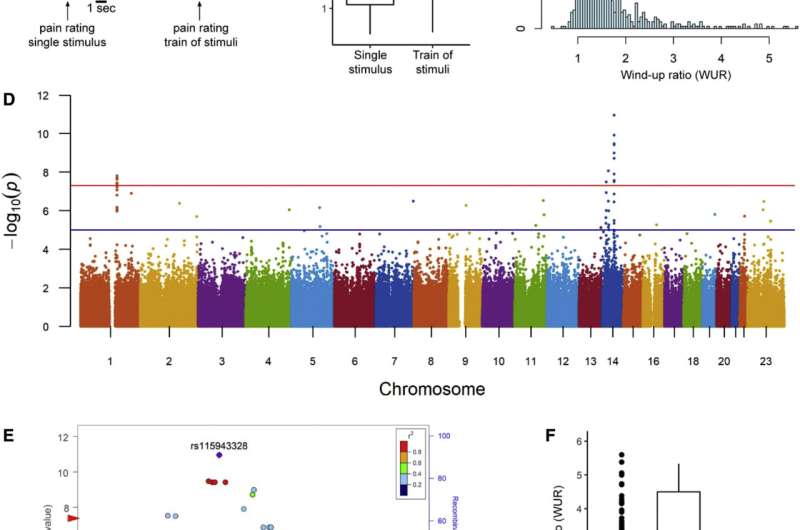
Oxford researchers have discovered a gene that regulates pain sensitization by amplifying pain signals within the spinal cord, helping them to understand an important mechanism underlying chronic pain in humans and providing a new treatment target.
Chronic pain is a common issue affecting millions of people worldwide, but why some people are more prone to it and what factors lead to chronic pain are not fully understood.
It is well known that repeated stimulation, such as with a sharp pin prick, can lead to a heightened sensitivity to pain. This process is called “pain wind-up” and contributes to clinical pain disorders.
In a two-part study, researchers from Oxford’s Nuffield Department of Clinical Neurosciences first compared genetic variation in samples from more than 1,000 participants from Colombia, to look for clues as to whether there were any genetic variants more common in people who experienced greater pain wind-up. They noted a significant difference in variants of one specific gene (the protein Sodium Calcium exchanger type-3, NCX3).
The researchers then undertook a series of experiments in mice, to understand how NCX3 regulates pain wind-up and whether it may be a treatment target. NCX3 was expressed in the mouse spinal cord neurons that process and transmit pain signals to the brain. NCX3 was needed by these neurons to export the excess calcium that builds up following activity. In the absence of NCX3 the spinal cord neurons showed more activity in response to injury signals from the periphery and pain wind-up was increased.
Conversely, increasing the levels of NCX3 within the spinal cord could reduce pain in the mouse.
David Bennett, professor of neurology and neurobiology of the Nuffield Department of Clinical Neuroscience, said: “This is the first time that we have been able to study pain in humans and then to directly demonstrate the mechanism behind it in mice, which provides us with a really broad understanding of the factors involved and how we can begin developing new treatments for it.”
Professor Bennett added: “Chronic pain is a global problem, and can be immensely debilitating. We carried out the study in Colombia because of the mixed ancestry of the population there, including Native Indian, African and European populations, which gave us a broad range of genetic diversity to look at. This makes these findings so exciting because of their potential international applications.
Source: Read Full Article
